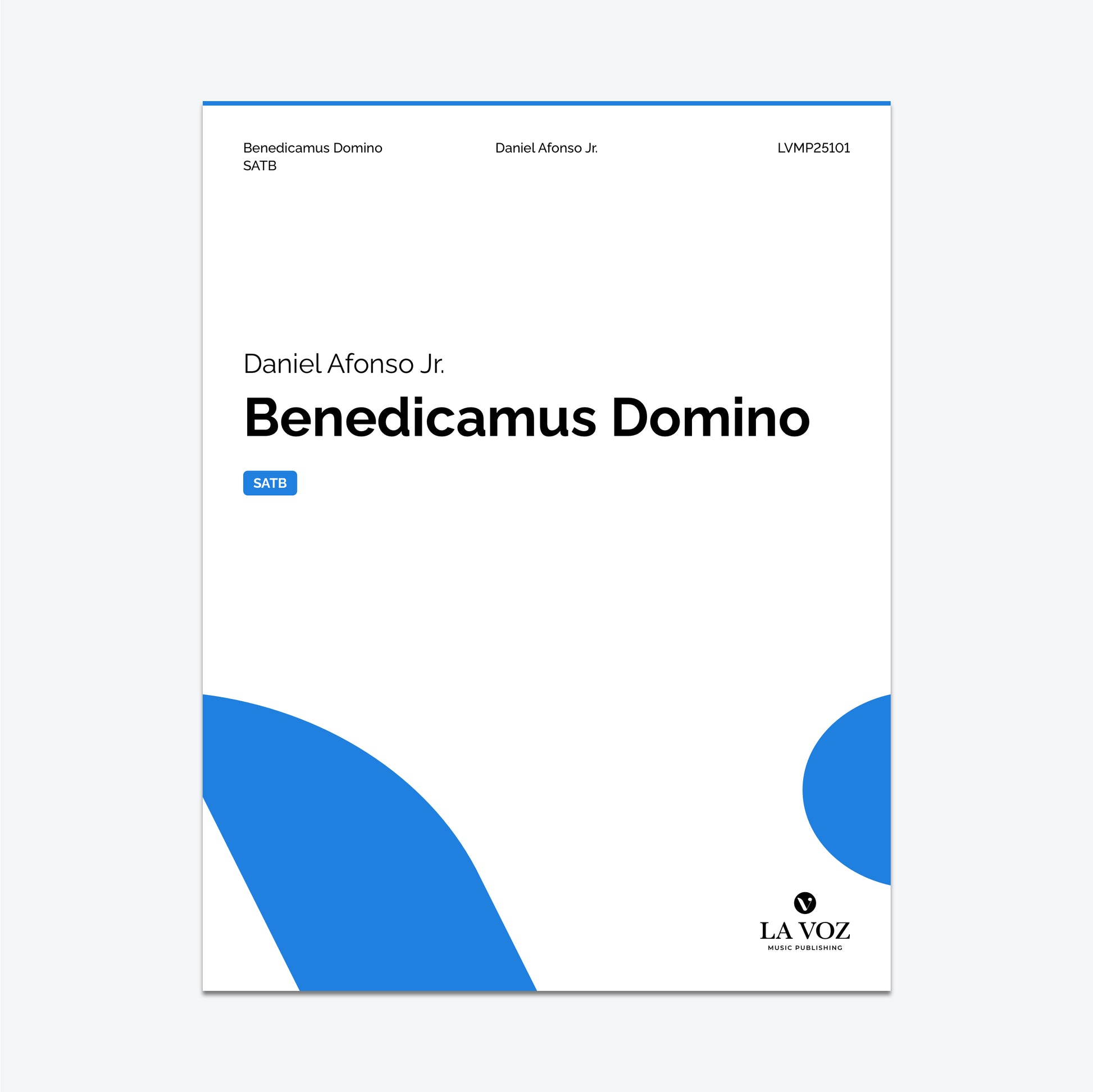Dr. Ángel M. Vázquez-Ramos

Benedicamus Domino
Price
Description
Benedicamus Domino was commissioned by Dr. Magen Solomon for the San Francisco Bach Choir and premiered in December 2023. A new version for choir, piano, and string quintet was later arranged for the Syracuse University Singers and expanded to its current form for choir, string orchestra, piano, and percussion.
The piece sets a joyful 15th-century Christmas carol text that praises the Virgin Mary and the birth of Christ. It is written in the style of a Brazilian marcha rancho, a festive musical form traditionally used in parades and celebrations. The tempo is allegretto to reflect the carol’s spirited nature. Brazilian percussion instruments may be substituted with standard concert percussion if needed.
Composer
Daniel Afonso Jr.
Product Information
Category
Sacred
Voicing
SATB
Language
Latin
Instrumentation
SATB and piano & SATB and chamber orchestra. Conductor's score and instrumental parts available soon.
Minimum Order Quantity
This product has a minimum order quantity of 10 copies.












